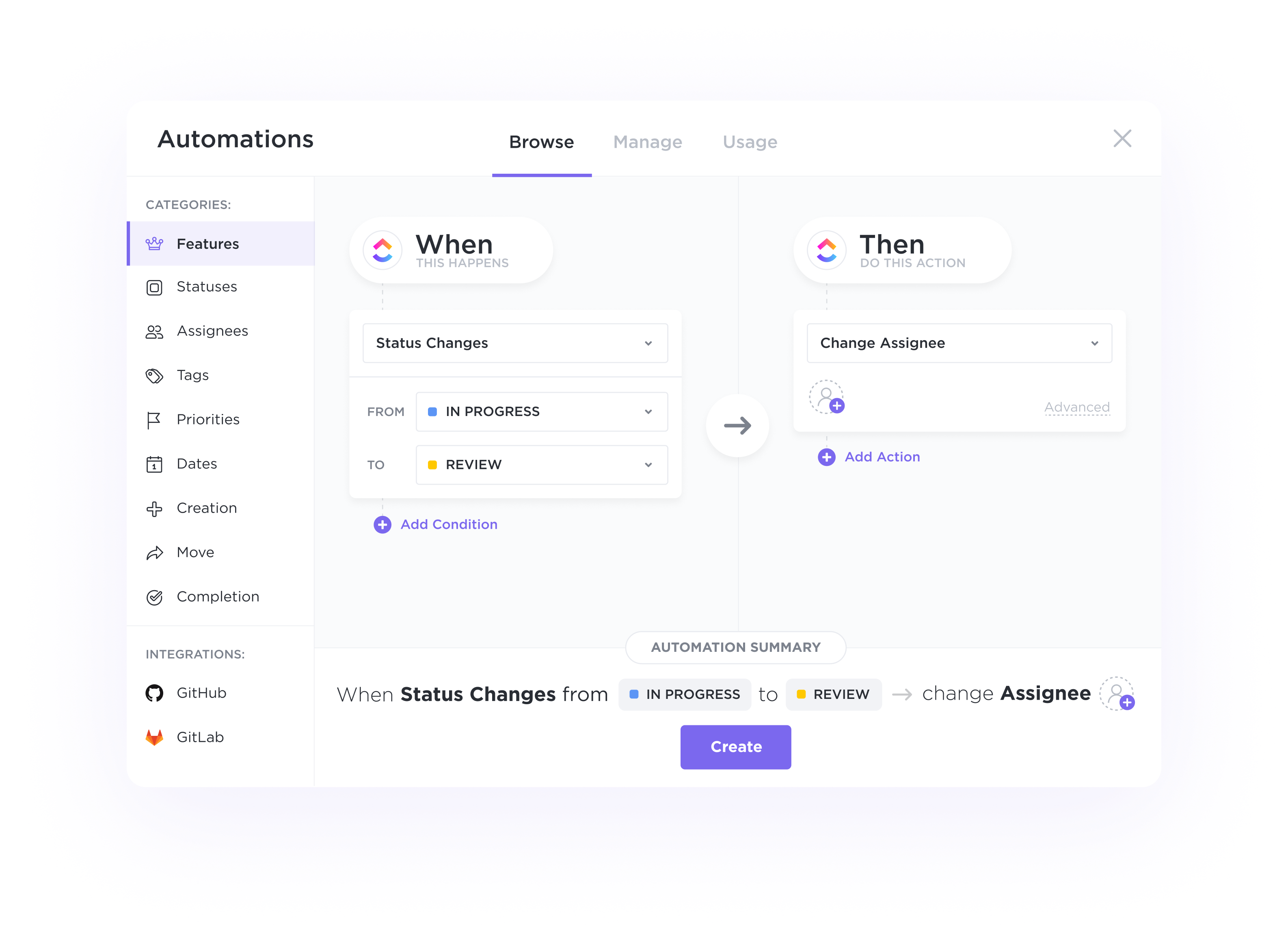Automations
Automate handoffs, status updates, and more.
Automatically assign tasks for each stage of your pipeline, trigger status updates based on activity, and switch priorities to alert your team on where to focus next.

Gantt Charts
Revolutionize hospital management with our customized CRM system powered by ClickUp. Streamline patient interactions, automate appointment scheduling, and improve overall efficiency with our user-friendly platform. Experience seamless communication and organization to provide top-notch care for your patients.
Free forever. No credit card.
Automations
Automatically assign tasks for each stage of your pipeline, trigger status updates based on activity, and switch priorities to alert your team on where to focus next.

Relationships
Create your ideal system to store and analyze contacts, customers, and deals. Add links between tasks, documents, and more to easily track all your related work.

A CRM system for hospitals can centralize patient information, including medical history, treatment plans, appointments, and billing details. This centralization ensures that all healthcare providers have access to up-to-date and accurate patient data, leading to better coordination of care.
CRMs can facilitate communication with patients through automated appointment reminders, follow-up messages, and educational materials. By engaging patients outside of hospital visits, healthcare providers can enhance patient satisfaction, adherence to treatment plans, and overall health outcomes.
For hospitals with multiple departments or specialties, managing referrals efficiently is crucial. A CRM can streamline the referral process, track referrals from primary care physicians or other healthcare providers, and ensure timely follow-ups, reducing the risk of patients falling through the cracks.
CRMs in hospitals can provide insights into resource utilization, such as bed occupancy rates, equipment availability, and staff schedules. By analyzing these data, hospital administrators can optimize resource allocation, improve operational efficiency, and ensure better patient care.
Compliance with healthcare regulations and data security are paramount in the healthcare industry. A CRM designed for hospitals can help in maintaining compliance with regulations like HIPAA, ensuring patient data security, and providing audit trails for all interactions with patient records.
Key features of a CRM software for hospitals include patient data centralization, appointment scheduling, communication tools, referral management, analytics for patient insights, and integration with EHR systems to streamline operations and enhance patient care.
Yes, CRM software for hospitals can integrate with existing electronic health record (EHR) systems to streamline patient data management, improve care coordination, and enhance the quality of patient care through a more comprehensive view of patient information across systems.
CRM software can help hospitals by centralizing patient information, enabling personalized communication, automating appointment reminders, facilitating follow-up care, and improving patient satisfaction through better engagement and care coordination.